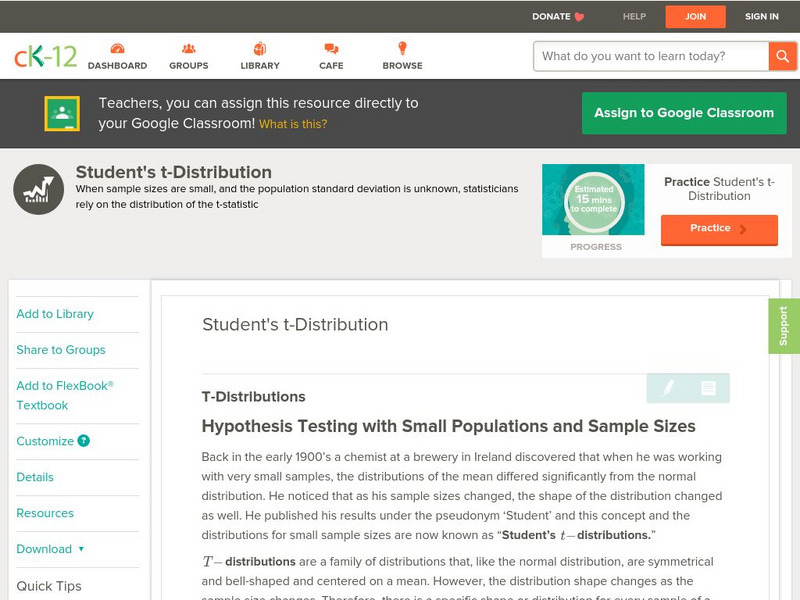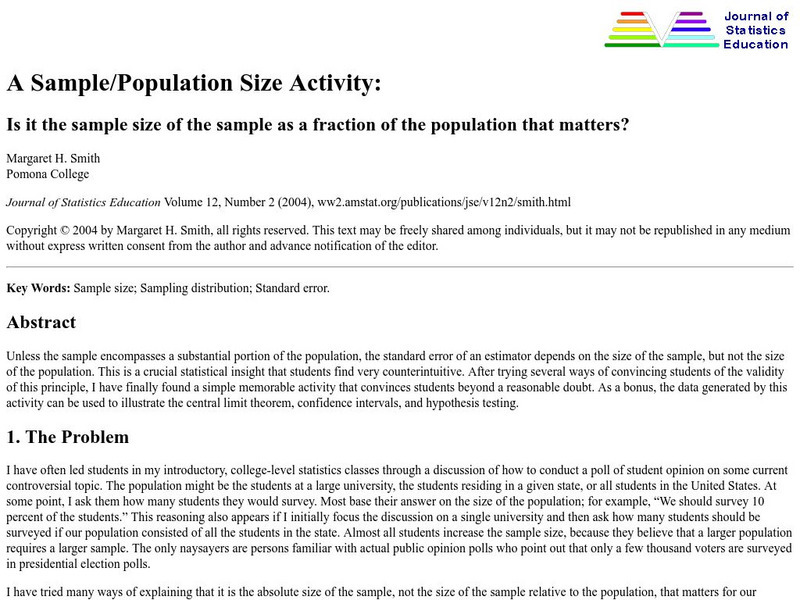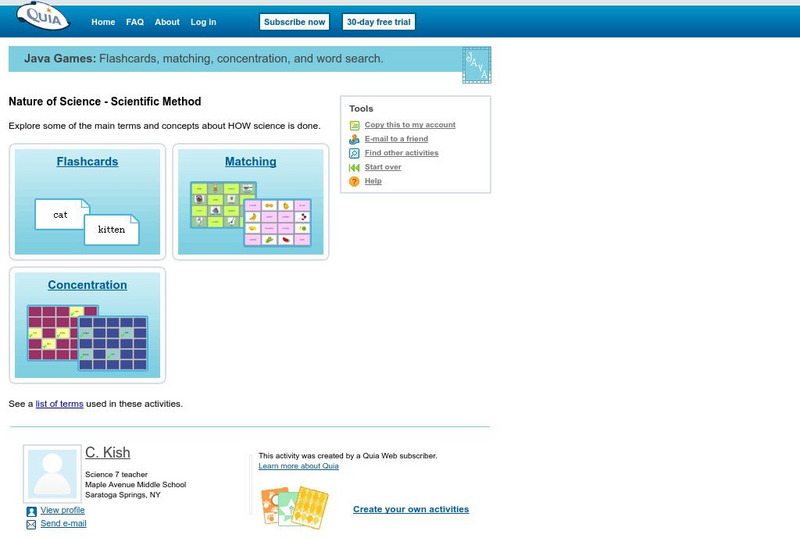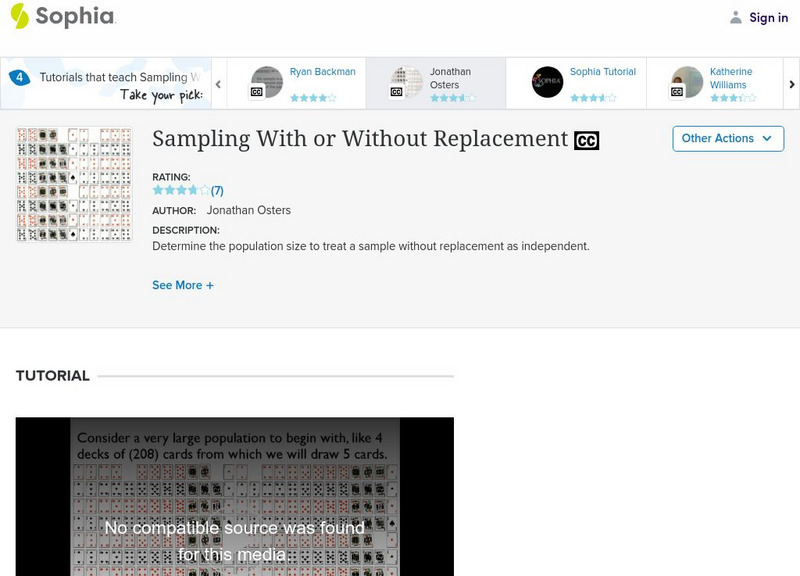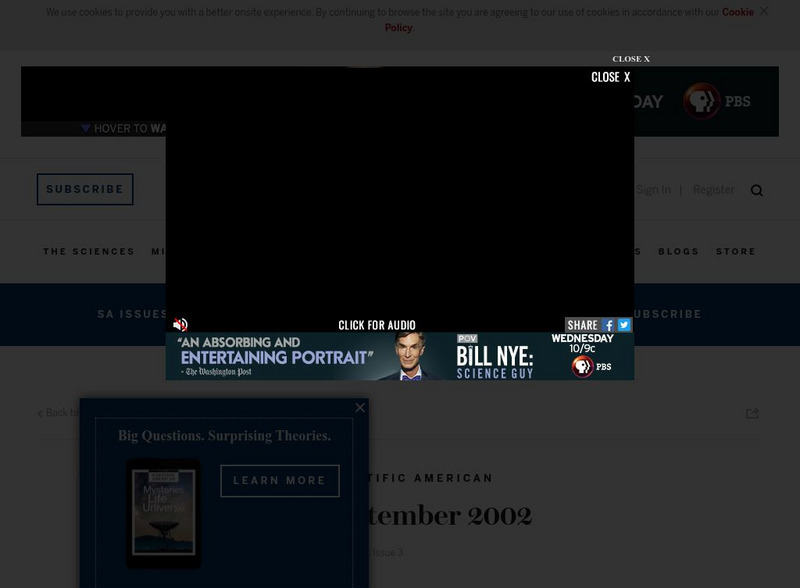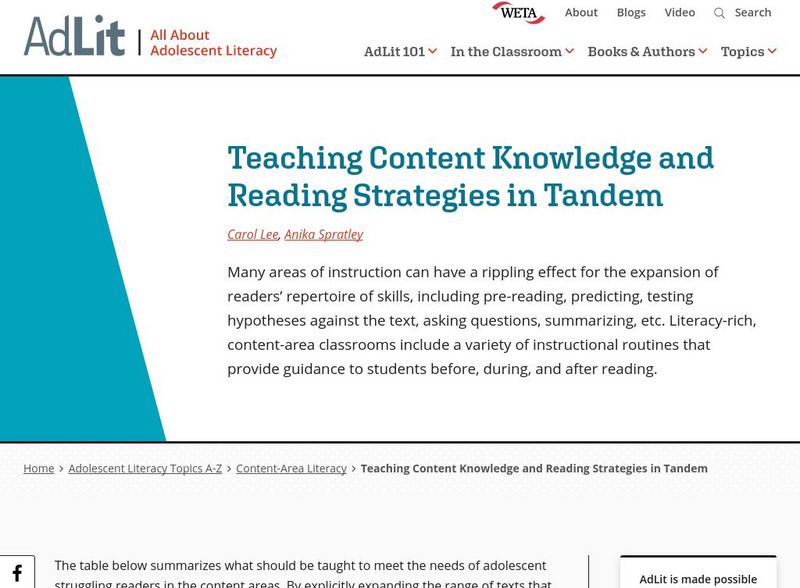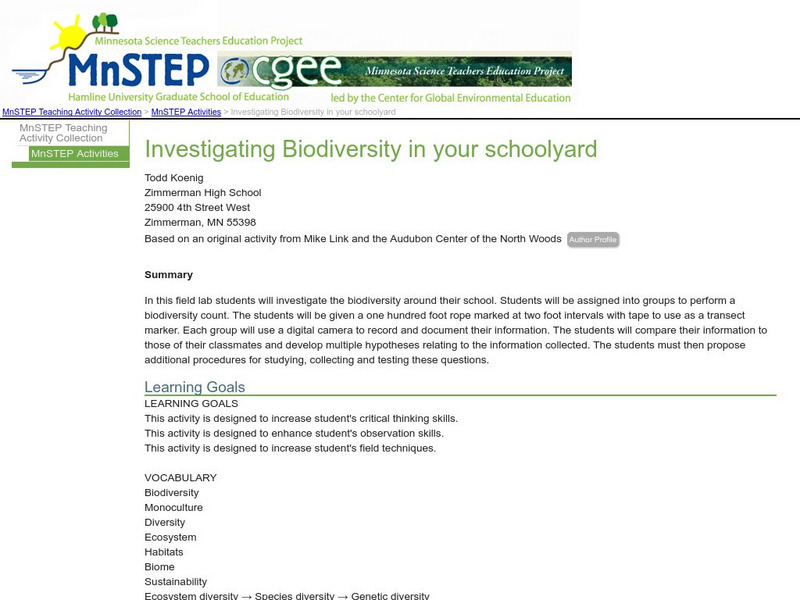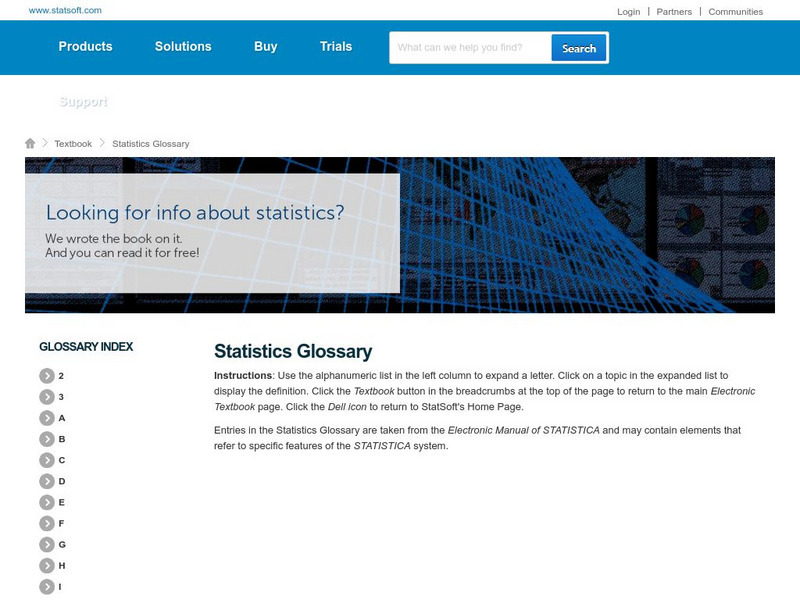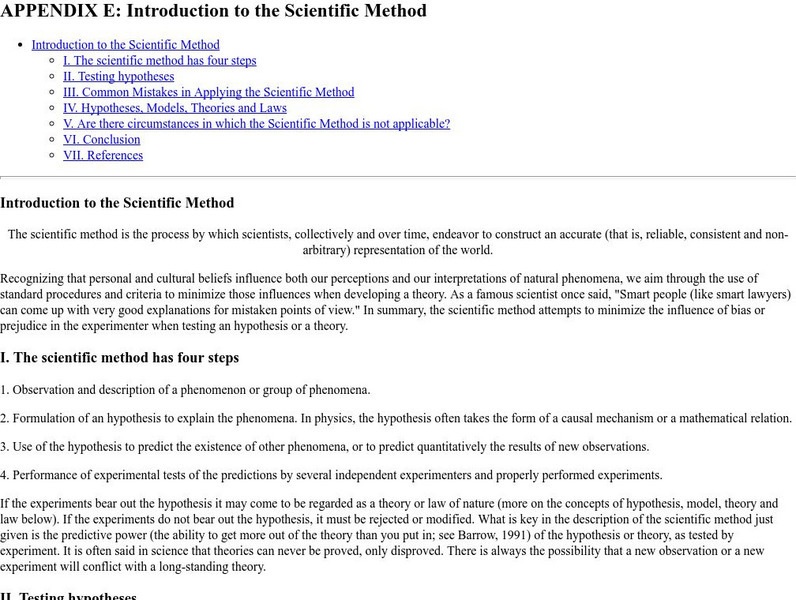Hi, what do you want to do?
Missouri State University
Missouri State U.: Introductory Statistics: Concepts, Models, and Applications
This is a comprehensive online text about statistics which covers all the basic concepts.
CK-12 Foundation
Ck 12: 6.8 Comparing Two Groups
This lesson applies the principals of hypothesis testing to situations involving two samples. It identifies situations with different types of samples, and explores how to test hypotheses about the difference of proportions or means...
Science Education Resource Center at Carleton College
Serc: Eggs and the Equinox
In this guided inquiry activity, learners work to address the myth, "Eggs will balance on end on the equinox." Students to come up with their own procedure to test this question and perform the experiment.
Science Education Resource Center at Carleton College
Serc: Investigating Starch in Foods
This lesson would be used during our nutrition unit when discussing carbohydrates. In this classroom activity students investigate which foods have starch in them by using iodine, as well as investigate the result of iodine and lemon...
TED Talks
Ted: Ted Ed: Can You Solve This?
In this video, Veritasium asks people to try and figure out the rules of a pattern presented. This video teaches us about the scientific method and how our preconceived notions can affect how we discover new information. [4:43]
Science Struck
Science Struck: Difference Between Type 1 and Type 2 Errors
Learn what Type 1 and Types 2 errors are in statistics and how they differ. Includes examples demonstrating the differences.
Texas Instruments
Texas Instruments: Numb3 Rs: The Odds on Favorite
Based off of the hit television show NUMB3RS, this lesson introduces students to the odds ratio, a method in statistics for determining if the findings of two groups are statistically significant to each other. Students will find...
CK-12 Foundation
Ck 12: Statistics: Student's T Distribution
[Free Registration/Login may be required to access all resource tools.] This Concept introduces the Student's t-distribution and degrees of freedom.
Other
Journal of Statistics Education: A Sample / Population Size Activity
The author of the article admits having had a difficult time in the past when getting students to understand that samples need to contain a substantial portion of the population. Here, an activity is detailed to bring this important fact...
Other
Astronomy Notes: A Scientific Theory Is . . .
This brief review explains that a scientific theory comes from testing an idea.
PBS
Pbs Teachers: Curious George: Ramp N Roll Experiment
Identify simple principles of physical science and engineering by exploring ramps and things that roll. Predict which items will slide or roll down a ramp and test your predictions.
Quia
Quia: Nature of Science
Find games and flashcards that students can use to learn the words associated with the scientific method.
Sophia Learning
Sophia: Sampling With or Without Replacement: Lesson 3
This lesson will explain sampling with and without replacement. It is 3 of 4 in the series titled "Sampling With or Without Replacement."
Scientific American
Scientific American: Smart People Believe Weird Things
This article, published by Scientific American (September 2002), explores how smart people can believe weird and silly things. The article comes to the conclusion that our beliefs are shaped more by our environment than our understanding...
AdLit
Ad lit.org: Teaching Content Knowledge and Reading Strategies in Tandem
Many areas of instruction can have a rippling effect for the expansion of readers' repertoire of skills, including pre-reading, predicting, testing hypotheses against the text, asking questions, summarizing, etc. Literacy-rich,...
Science Education Resource Center at Carleton College
Serc: Investigating Biodiversity in Your Schoolyard
In this field lab, students will investigate the biodiversity around their school and record and document the information they find. The students will compare their information to those of their classmates, develop multiple hypotheses...
Science Education Resource Center at Carleton College
Serc: An Investigation Into Geologic Mapping: Quarry Park
In this geology field lab, learners will map an area around Quarry 12 and Quarry 13 in Quarry Park. Using a field notebook, students will take field observations to later produce a basic geologic map, topographic map, and a...
Other
Stat Soft: Statistics Glossary
Dozens of statistical terms are defined and illustrated in this glossary.
Other
University of Rochester: Intro. To the Scientific Method
Here you can find a detailed overview of the scientific method. Content addresses what the scientific method is, its four steps, some common mistakes when applying the scientific method, and more.
National Center for Ecological Analysis and Synthesis, University of California Santa Barbara
Nceas: Scientific Method
This concise site from NCEAS contains an explanation of the scientific method along with a basic example of the scientific method in action.











